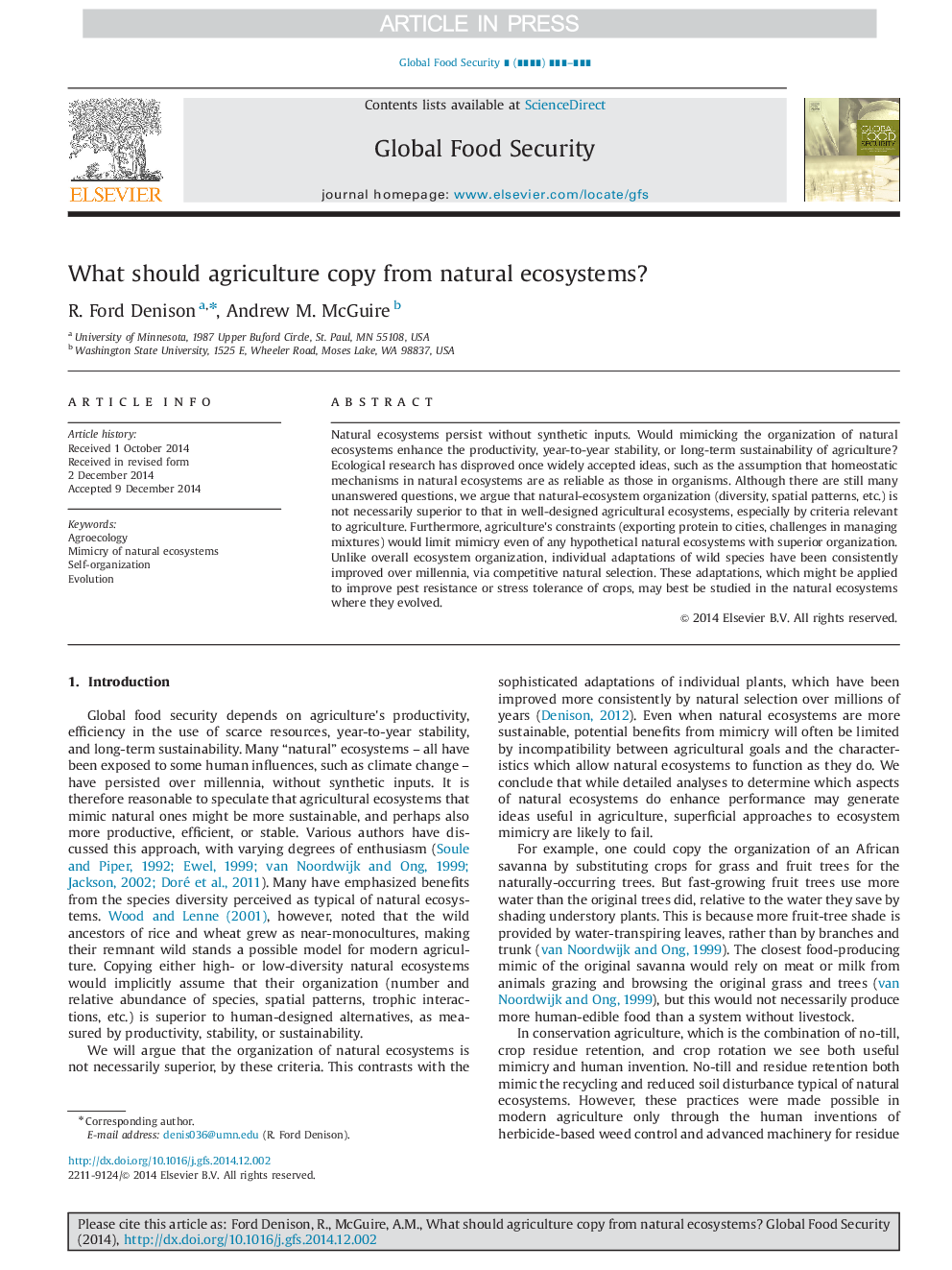| Article ID | Journal | Published Year | Pages | File Type |
|---|---|---|---|---|
| 7454780 | Global Food Security | 2015 | 7 Pages |
Abstract
Natural ecosystems persist without synthetic inputs. Would mimicking the organization of natural ecosystems enhance the productivity, year-to-year stability, or long-term sustainability of agriculture? Ecological research has disproved once widely accepted ideas, such as the assumption that homeostatic mechanisms in natural ecosystems are as reliable as those in organisms. Although there are still many unanswered questions, we argue that natural-ecosystem organization (diversity, spatial patterns, etc.) is not necessarily superior to that in well-designed agricultural ecosystems, especially by criteria relevant to agriculture. Furthermore, agriculture׳s constraints (exporting protein to cities, challenges in managing mixtures) would limit mimicry even of any hypothetical natural ecosystems with superior organization. Unlike overall ecosystem organization, individual adaptations of wild species have been consistently improved over millennia, via competitive natural selection. These adaptations, which might be applied to improve pest resistance or stress tolerance of crops, may best be studied in the natural ecosystems where they evolved.
Related Topics
Life Sciences
Agricultural and Biological Sciences
Agronomy and Crop Science
Authors
R. Ford Denison, Andrew M. McGuire,
